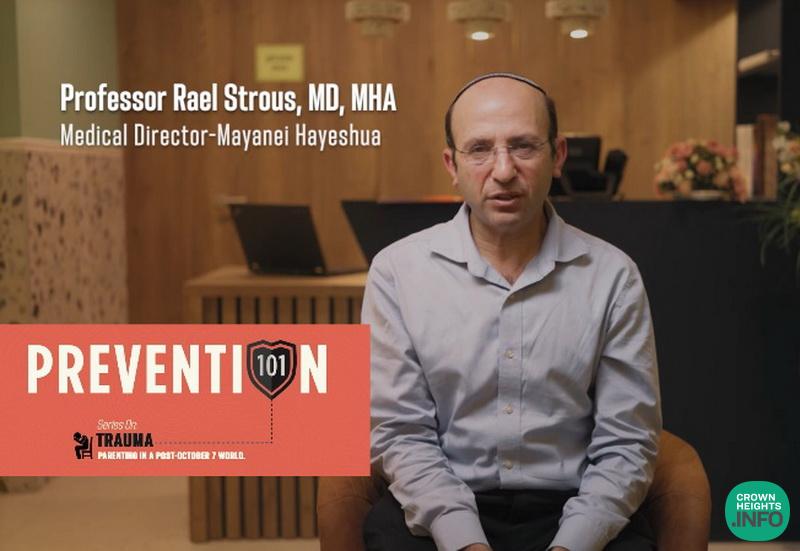
Prevention101: How Does Generational Trauma Affect Our Response to Trauma?
Series on Trauma: Episode 11 – Parenting in a Post-October 7th World. The series addresses questions regarding trauma following the massacre of October 7th and the surge of global anti-Semitism.
How does generational trauma affect our response to trauma?
There are two ways we are exposed to and experience trauma in a community: generational and intergenerational. One of them is social, and one of them is biological.
Any person who has gone through trauma and has come through the trauma—for good or for bad—is a different person after the trauma. This is seen in their behavior and expressed in their interactions with other people and transmitted to the next generation.
Some people have responded to trauma in a very extreme way, such as fifteen to twenty percent of those who develop PTSD from the Shoah or those fifteen to twenty percent who have expressed PTSD from the trauma of October 7. There’s a very good chance that a lot of that will be expressed to the next generation by how they behave, how they discuss things, how they respond, how they live their lives, and how they continue to work, love, and be happy. This occurs on a social-environmental level.
There is also a biological level. Trauma can be transmitted to the next generation on a genetic level. This is studied in the field of epigenetics, which is a sophisticated way of saying that our genes change based on traumatic experiences that we may experience during our lives.
We won’t go into specifics now because it’s very technical. But a change in the biology of our DNA, our genetic material, can be transmitted to the next generation. We can affect the next generation by learning how to cope with trauma in a better way so as not to allow it to be expressed in our genes, which will then be transmitted to the next generation.
This is a fundamental, profound responsibility. Not just for us to deal with stress in a better way, but to ensure that some of our dysfunctional manner of dealing with trauma and stress does not get passed on to the next generation. That’s a big responsibility.










